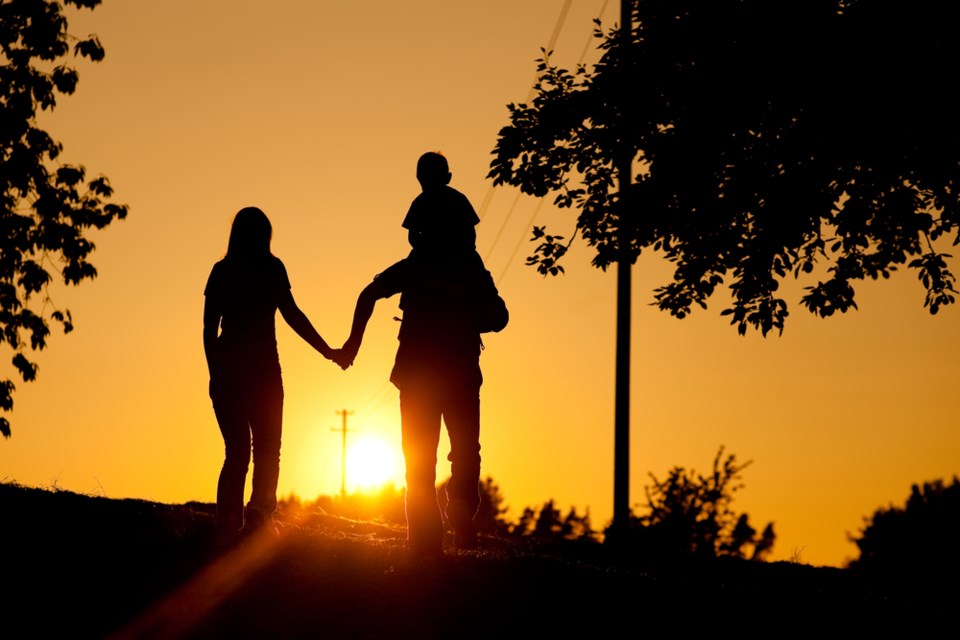The stress and anxiety of an upended routine can pose a range of challenges for families during the COVID-19 pandemic. Schools and daycares are closed, people are social-distancing, grocery store trips now feel like risky solo missions – it's a lot to take in for everyone in the family.
"I'm hearing from a lot of people, how do I work from home? How do I take care of our kids if there's no childcare, there's no school? How do I keep my kids entertained so they don't drive me crazy? And how do we settle ourselves too, as adults and parents?" said Kjariene Seymour, a registered psychologist with Rivers Edge Counselling in St. Albert.
"It's a tricky time because we're just not used to this."
How do I talk to my kids, teenagers about COVID-19?
Deciding how much to talk about COVID-19 to your kids can depend on their age, but it can be helpful to approach them and ask them what they want to know.
"I've been encouraging parents to ask their children, especially if they're school-age or older, 'What would you like to know? What questions do you have?' Sometimes the things we anticipate are good questions is not actually what's going to reassure them," Seymour said.
Teenagers will probably have a lot more questions, and it's helpful to let them have a little more control in how their day-to-day schedule will look like, said Andrea Thrall, a registered psychologist with Rivers Edge Counselling.
"Teenagers are getting ready to launch and the focus with them is helping them to build the skills and abilities that will help them be successful as an adult. So I want a lot of input from my teens as to what the structure and schedule is going to look like," Thrall said.
Checking in with how teenagers and kids are feeling will be an ongoing process, she said, but it can be casual, like asking how everyone is doing around the dinner table.
How do I create structure for younger kids?
Now that daycares are closed and schools are closed, keeping your younger kids entertained at home can feel like a marathon.
Have a variety of activities available to keep them engaged and active, even if they only last for five or ten minutes.
"I've seen people use teacher's tape on the floor in the form of numbers to play hopscotch. They're able to engage with that and learn their numbers, you can also do this with letters," Seymour said.
Getting kids outside while practising social distancing is important, too.
"It gives them a way to move their bodies in a way that they can't get inside the house," she said.
Managing disconnection, loneliness, conflict
Children and teenagers may feel disappointed, lonely and disconnected from their friends the longer social-isolation goes on.
This is where families can use social media and video chat applications like Skype or Facetime can be used as a tool, Seymour said.
"I know a lot of parents reduce more screentime, but they need time to connect with their friends, connect with their family members," she said.
Given the circumstances, it's okay to allow for more screentime if that's what's needed, Thrall said.
"Even though it's not necessarily ideal to have a lot of screen time, we've got some other priorities that are being trumped. The need for connection for other people is going to be more important than keeping to an hour a day of screentime," she said.
When people are stuck in a house together, it's normal for them to get upset with each other, Thrall said. There's nothing "wrong" if fights happen, but figuring out how to cope with conflict ahead of time can help bring tension levels down.
"You can have a really sensitive dialogue by sitting down and saying, 'Hey, people get grumpy with each other sometimes, how are we as a family going to deal with that? What's our plan for handling conflict?' And so you get input each person, and you come to a decision about what works for you."
Prioritize your own mental health
Parents are facing a lot of demands all at once because of COVID-19. On top of that, they're juggling everything with fewer supports or resources than they're used to. But be careful to not shove those feelings down because there's a lot going on, Seymour said.
"Adults in general push things aside, we shove our feelings aside. Yet if we don't process our feelings, if we don't allow our feelings, if we don't cope with them in some way and give ourselves a break, they're going to leak out and they're going to impact our kids. That's one of the most important things parents can do."
Incorporate more ways to cope with stress into your day, like deep breathing or visualization exercises. It can be as simple as going into another room to get some space, or connecting with other parents or members of the community online for support. But be kind and gentle with yourself, Seymour said.
"What we really need to do is centre ourselves as much as we can, getting ourselves back to that routine, and be gentle with each other as much as we can. Just knowing that we're all in this together – and I know that is kind of – but we are all in this together, we really are."
Want more information? For the next few months, Rivers Edge Counselling is offering a free webinar series covering a variety of topics to help individuals and families maintain their mental health through the pandemic. Register through their website online.


.jpg;w=120;h=80;mode=crop)

